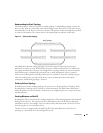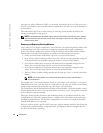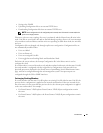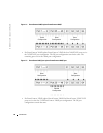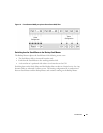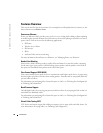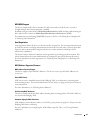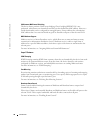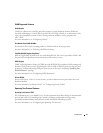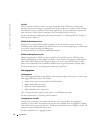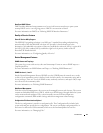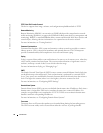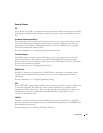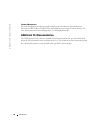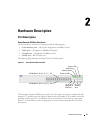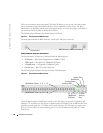
Introduction 31
VLAN Supported Features
VLAN Support
VLANs are collections of switching ports that comprise a single broadcast domain. Packets are
classified as belonging to a VLAN based on either the VLAN tag or based on a combination of the
ingress port and packet contents. Packets sharing common attributes can be grouped in the
same VLAN.
For more information, see "Configuring VLANs."
Port Based Virtual LANs (VLANs)
Port-based VLANs classify incoming packets to VLANs based on their ingress port.
For more information, see "Defining VLAN Ports Settings."
Full 802.1Q VLAN Tagging Compliance
IEEE 802.1Q defines an architecture for virtual bridged LANs, the services provided in VLANs, and
the protocols and algorithms involved in the provision of these services.
GVRP Support
GARP VLAN Registration Protocol
(GVRP) provides IEEE 802.1Q-compliant VLAN pruning and
dynamic VLAN creation on 802.1Q trunk ports. When GVRP is enabled, the device registers and
propagates VLAN membership on all ports that are part of the active underlying
"Spanning Tree
Protocol Features"
topology.
For more information, see "Configuring GVRP Parameters."
Private VLANs
Private VLAN ports, a Layer 2 security feature, provide isolation between ports within the same
Broadcast domain.
For more information on Private VLANs, see "Configuring Private VLANs".
Spanning Tree Protocol Features
Spanning Tree Protocol (STP)
802.1d Spanning tree is a standard Layer 2 switch requirement that allows bridges to automatically
prevent and resolve L2 forwarding loops. Switches exchange configuration messages using
specifically formatted frames and selectively enable and disable forwarding on ports.
For more information, see "Configuring the Spanning Tree Protocol."



